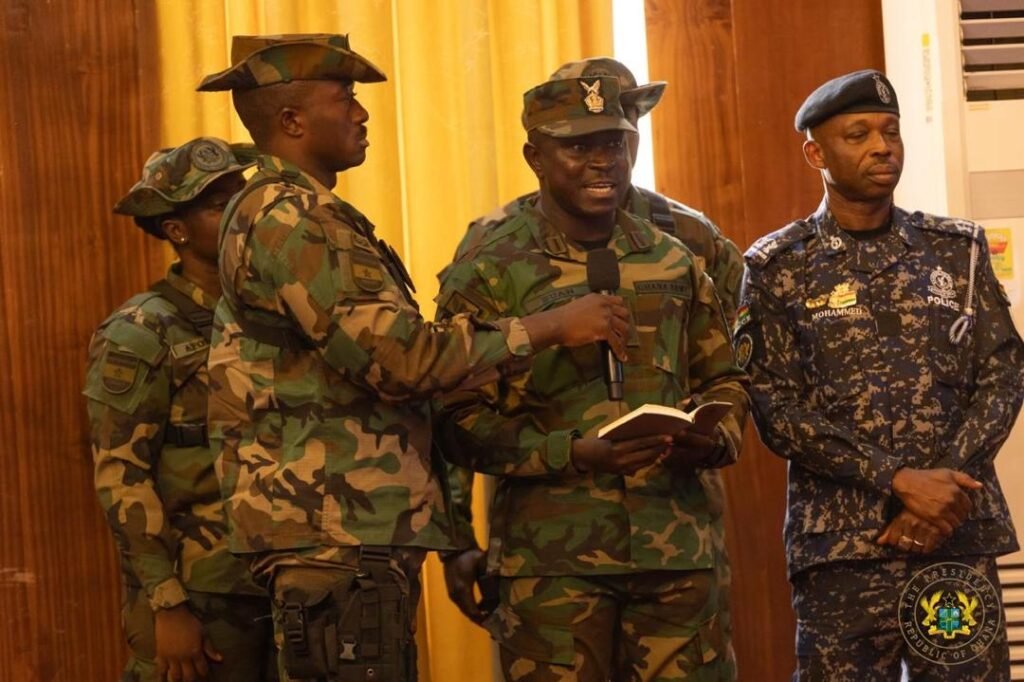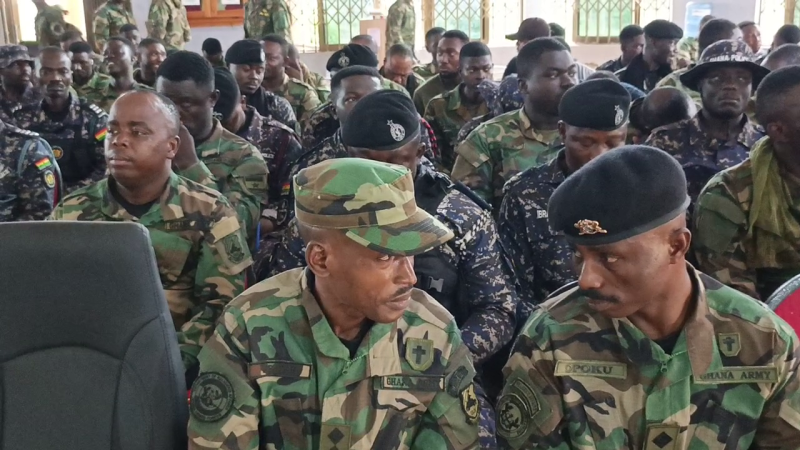Fraud Prevention Expert and Security Consultant, Richard Kumadoe, has urged government agencies involved in the national campaign against illegal and inappropriate mining to take advantage of the upcoming Christmas period to conduct a comprehensive review of their operations.
In his view, such a pause is not a retreat from the fight but an essential strategic reset to ensure that frontline officers are better equipped, threats are better understood, and outcomes are significantly improved going into the new year.
“I seriously think all agencies, departments, and government ministries in the fight against inappropriate mining (nationwide) would need a Christmas break session to critically consider the strength of the various teams.”
Fraud Prevention Expert and Security Consultant, Richard Kumadoe
Kumadoe, who has been vocal on issues of security coordination and operational preparedness across state institutions, argued that the complexities surrounding illegal mining demand more than continuous field operations.
He explained that operational deficiencies often stem from inadequate staffing, poorly coordinated deployments, and gaps in institutional support. For him, preventing escalation begins with identifying what each agency can or cannot do.

He believes the country would benefit if the institutions involved in the fight—ministries, departments, and agencies—devoted time during the holidays to assess their strengths, limitations, and the changing tactics of illegal mining actors.
Evaluation of the Capacity and Operational Quality
According to him, the challenges currently confronting the anti-illegal mining campaign will only multiply if not properly analysed and addressed. He stressed that a key focus of this Christmas review session should be an honest evaluation of the capacity and operational quality of the various teams involved in fieldwork.
Kumadoe believes that acknowledging weaknesses and challenges in the field is equally important. He noted that field officers regularly operate in unpredictable environments, sometimes with insufficient equipment, logistics, or intelligence support.
Such constraints, he warned, weaken the resolve of hardworking personnel and reduce the effectiveness of the overall national response. He therefore urged agencies to confront these issues openly, emphasising that weaknesses are not signs of failure but opportunities to reorganise operations.
He also expressed deep concern for the safety of frontline officers who are increasingly exposed to dangerous encounters with illegal miners. Describing these threats as both real and evolving, Kumadoe urged the responsible agencies to “consider the real threats against officers, especially the frontline teams in the field and how to overcome” them.
He suggested that a structured Christmas review could help the state explore options for better protective measures, improved communication systems, and defensive planning that can secure field officers without limiting operational success.

Resistance of Ilegal Miners
A recurring concern in Kumadoe’s call is the growing boldness and resistance of illegal miners. He called on the government and security agencies to assess “the reasons for the emboldened nature of the inappropriate miners,” noting that such behaviour does not arise in a vacuum.
Whether driven by financial incentives, political protection, or gaps in enforcement, he believes understanding the roots of this confidence is critical to dismantling it. According to him, a rigorous analysis could help shape strategies that match the aggressiveness and adaptability of illegal mining networks.
Kumadoe also advised that scientific methodologies, clearer teamwork structures, and improved inter-agency collaboration should form part of the reflection. He noted that agencies must “evaluate scientific ways and methodologies of achieving results on a straight-line basis” and recognise how better teamwork and early coordination can lead to more impactful outcomes.
He suggested that starting coordinated missions early in the day could prevent illegal miners from escaping or launching counterattacks. He further urged the examination of patterns of attacks on field officers and the need to prioritise safety without compromising results.
According to him, identifying territorial hotspots, understanding behavioural trends of aggressors, and preparing pre-emptive safety protocols could reduce the number of dangerous confrontations.
Streamlining field visits and scheduling operations more strategically across specific zones, he said, would “curtail and deter attackers from advancing.” One of the strongest warnings in Kumadoe’s message is directed at the underuse of local law enforcement officers, especially those with intelligence knowledge.
“Not making progressive use of local law enforcement officers, especially security intelligence insights and critical inputs, may lead to levels of dreadful discomfort, ambushment and a series of anxiety moments which could have been avoided, detected and prevented.”
Fraud Prevention Expert and Security Consultant, Richard Kumadoe
His emphasis suggests that despite national-level interventions, much of the practical intelligence needed to dismantle illegal mining groups lies with local officers who understand community dynamics.

Kumadoe ended his message with words of encouragement for those risking their lives to protect the country’s natural resources. “I wish all in the frontlines well and pray for grace and success. May God strengthen you all,” he wrote, acknowledging the sacrifices of security personnel and enforcement teams across the country.
As Ghana continues its long-standing battle against illegal mining, Kumadoe’s call for a Christmas period of sober operational reflection offers a timely proposal. Whether agencies will adopt his recommendations remains to be seen, but the urgency of the issues he raises underscores the importance of strategic realignment in the country’s national fight against illegal mining.
READ ALSO: Ghana Targets 1,400 Megawatts in Renewable Energy by 2030























